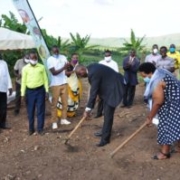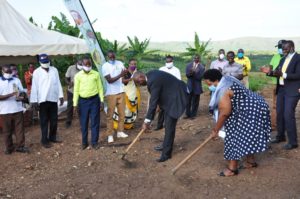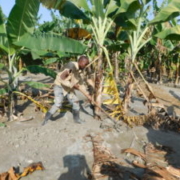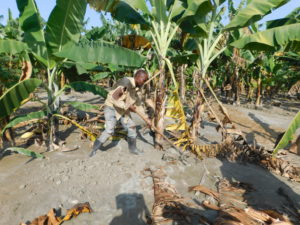Karamoja traders welcome the re-opening of the Moroto- Nakapiripirit- Mbale road
Traders from Karamoja have described as a relief, the reopening of Moroto- Mbale- Muyembe road, saying that it will ease access to bigger markets and reduce their cost of doing business.
The route, preferred by traders transporting merchandise from the Sebei sub-region to Karamoja, was closed at the start of May by the Uganda National Roads Authority (UNRA) for maintenance, forcing traders from the districts of Bugisu and Sebei to take a 350km detour from Mbale through Soroti, Katakwi, Napak to Moroto, before connecting to Nakapiripirit and Amudat.
The road’s closure followed flash floods in the area which had washed away the Namaler and Cheptui bridges that link Mbale to Karamoja.
Following the closure, there was a spike in the prices of foodstuffs in Karamoja, with suppliers blaming the long transport routes for the hike in prices. A cross-section of traders told theCooperator that where they would only cover 117kms from Mbale to Karamoja directly, they were now covering 350km on the route through Teso.
Josephine Nangiro, a trader in Moroto town told theCooperator that as a result of the road closure, the cost of transporting an 100kg-bag of maize flour from Mbale to Moroto had increased to Shs. 10,000, from the original Shs. 5,000. As a result, the price of maize flour had increased by up to 23%, from Shs. 3,000 to Shs. 3,700 per kilo. A survey by this publication also found that the price of sugar in Moroto Municipality had increased by 12.5%, from Shs. 4000 per kilogram to Shs. 4,500, while a mere three tomatoes cost between Shs. 2,000 to Shs. 3,000 depending on size, from a previous Shs.1000.
On Wednesday 11th of June, the road was re-opened to the public after inspection by the State minister for works Peter Lokeris Aimat.
Lokeris urged UNRA to maintain close monitoring of built roads to prevent emergency interventions that required the closure of roads that often complicate business and livelihoods for the ordinary people. “You need to do routine monitoring of these marram roads so that where you detect a problem, you repair that part immediately to avoid getting over damaged,” he said.
With the reopening, Nangiro was optimistic that they would now be able to lower food prices. Karamoja gets about 97% of its food from the neighboring districts of Sebei, Bugisu, Teso, Lango and Acholi.
Patrick Wamuno, the chairperson of Bugisu traders Association based in Moroto told thecooperator that he was organizing to call for a meeting of all the Association’s registered traders to see how to lower the prices of food stuffs with the shorter route’s reopening. “We’re expecting the transport costs to decline, so we shall no longer need to increase the prices of food,” he said.
The post Karamoja traders welcome the re-opening of the Moroto- Nakapiripirit- Mbale road appeared first on The Cooperator News.




